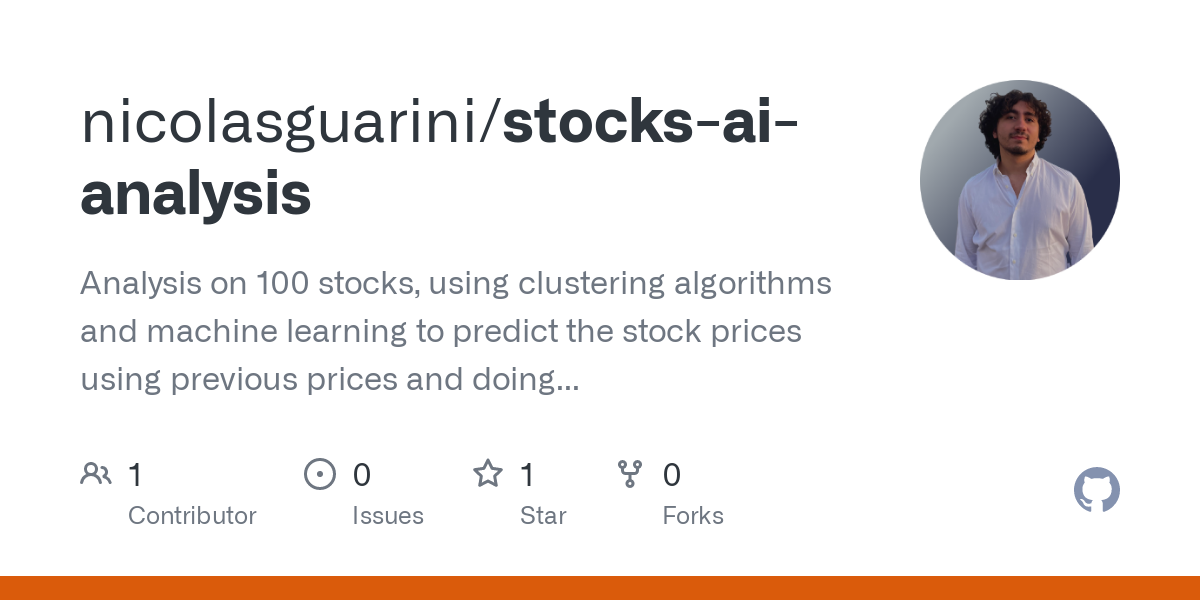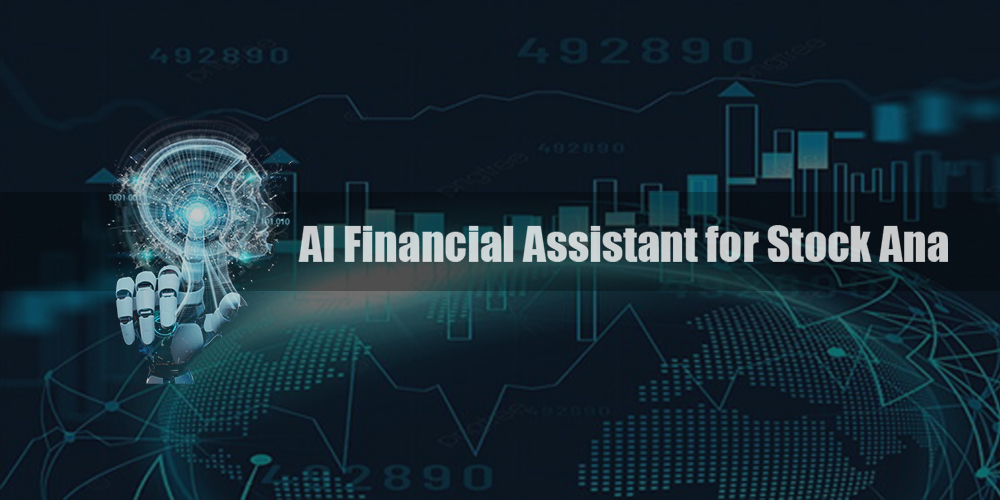20 Pro Ways For Picking Ai Investment App Websites
20 Pro Ways For Picking Ai Investment App Websites
Blog Article
Top 10 Ways To Evaluate The Performance And Accuracy Of Ai Trading Platforms For Stocks
Examining the accuracy and effectiveness of AI stocks and trading platforms is critical to ensure that you're using the right tool to provide solid insights and accurate predictions. These are the top ten ways to assess these platforms efficiently:
1. Backtesting Results
What to Look Out For: Verify if the software allows for backtesting, which will allow you to assess the accuracy of your predictions using historical data.
Why It Matters Backtesting is a way to confirm the AI model's accuracy by comparing its predictions with actual historical results.
Find platforms that can be customized backtesting parameters.
2. Real-time Performance Monitoring
What to look for Check the performance of the platform under market conditions that are in real-time.
What's important: The real-time performance is a better measure of the effectiveness of a platform than historical backtesting alone.
Utilize a free trial or demo account to monitor and compare real-time predictions with actual market activity.
3. Prediction Error Metrics
What to Look For: Use metrics such as Mean Absolute Error, Root Mean Squared Error or R-squared, to determine the accuracy of predictions.
Why is it important: These indicators are a method to determine how closely predictions correspond to actual results.
Tips: Platforms that allow openly shared metrics are generally more transparent.
4. Rate of Success and Win Rate
What to Look For Look for the platform's win rate (percentage of predictions that are correct) and the success rate (profitability of trading basing on forecasts).
What is important: High win rates and success ratios suggest greater predictive accuracy and potential revenue.
Remember that no system is 100% perfect.
5. Benchmarking Market Indices Against Benchmarks
What to Look Out For: Compare platform predictions and results to important indexes (e.g. S&P 500, NASDAQ).
Why it Matters It determines whether the platform performs better or less than the entire market.
TIP: Don't only seek out short-term gains but also a consistent performance over a longer time.
6. Consistency in Market Conditions
What to be looking for: How the platform performs when there are various market conditions.
What is important A solid system will perform well not only in favorable market conditions but also under all other circumstances.
Tip: Try the platform in volatile times or when the market is in a downturn.
7. Transparency in Methodology
What to Look For How to recognize AI algorithms and models (e.g. neural nets or reinforcement learning).
Transparency of the methodology lets you evaluate the scientific rigor and reliability of the system.
Avoid platforms that use models with "black boxes" without explaining how they generate predictions.
8. Tests by independent experts and User Reviews
What to look for: Read user reviews and look for independent testing or third-party evaluations of the platform.
What is important Reviews and tests conducted by independent experts provide unbiased insight into the platform's accuracy.
Tips: To learn what other users are saying about the service, visit forums like Reddit copyright as well as financial blogs.
9. Risk-Adjusted Returns
What to look out for How to evaluate the platform's performance using risk-adjusted measures such as the Sharpe Ratio or Sortino Ratio.
What is important The metrics are based on the degree to which risk is taken in order to earn returns. This provides an overall view of the performance.
Sharpe Ratio: If extremely high (e.g. greater than 1), this indicates higher returns when risk is taken into account.
10. Long-term track records
What to Look for : Compare the platform's performance for a long time (e.g. over three or five years).
What is important The long-term track record is more certainty than short-term results.
Avoid platforms with only a short-term gain or results that have been cherry-picked.
Bonus Tip: Try it with an Account Demo
You can test the platform using an account for a demo to see how accurate it can be in real time. This lets you evaluate accuracy and performance on your own.
By following these tips, you can thoroughly examine the reliability and accuracy of AI analysis and stock prediction platforms. Make sure you select one that is compatible with your investment goals and the risk you are willing to accept. Be aware that no platform can be guaranteed to be 100% accurate, so using AI insights with the results of your own research is usually the most effective approach. Check out the most popular I loved this for stock ai for site examples including invest ai, ai copyright trading bot, ai stock price prediction, trading ai, ai stock picker, stocks ai, best stock analysis app, incite ai, stock market software, best artificial intelligence stocks and more.
Top 10 Ways To Evaluate The Regulatory Conformity Of Ai Stock Predicting/Analyzing Trading Platform
Compliance with regulations is an essential element to evaluate AI-based trading platforms. Compliance can help ensure that the platform is operating within the legal frameworks and safeguarding personal data of the users. These are the top 10 guidelines for evaluating regulatory compliance.
1. Check the Licensing and Registration
Regulators: Make sure the platform's license and registration is with the relevant financial regulators (e.g. SEC or FCA in USA, ASIC or ASIC in Australia).
Broker partnerships: If a platform integrates with brokers, make sure that brokers are also properly licensed and regulated.
Public records: You can look on the official website of the regulator to find out whether the platform has been registered and if there has had any violations over the years.
2. Compliance with the Data Privacy Evaluation
GDPR: When operating in the EU or offering services to users there the platform must comply with the General Data Protection Regulation.
CCPA: California Consumer Privacy Act compliance is required for users.
Data handling policy: Make sure that you go through the platform's privacy policies to know the way in which user data is gathered and stored.
3. Examine Anti-Money Laundering(AML) measures
AML policies: Ensure that the platform is equipped with strong AML policies to prevent and detect cash laundering.
KYC procedures: Find out if the platform uses Know Your Customer (KYC) which validates user identities.
Transaction monitoring: Determine if the platform can monitor transactions and reporting any suspicious activities to the relevant authorities.
4. Make sure you're in compliance Trading Regulations
Market manipulation: Make sure that the platform has measures in place to prevent manipulation of the market such as spoofing and wash trading.
Types of orders: Verify that the platform is in compliance with the regulations applicable to the types of orders (e.g. there is no stop-loss hunt).
Best execution: Make sure the platform is in line with best execution practices, ensuring trades are executed at the best available price.
5. Review the level of Cybersecurity Compliance
Data encryption - Ensure that the platform uses encryption to secure data either in transit or when it is at in rest.
Incident response: Verify if the platform has a clearly defined incident response plan for data breaches or cyberattacks.
Certifications - Check to see if your platform has any cybersecurity certifications.
6. Transparency and disclosure: A Review
Fee disclosure. Make sure that all fees and charges are clearly stated, as well as any hidden charges or fees.
Risk disclosure: Verify whether the platform provides clear information about risk. Particularly, for high-risk or leveraged trading strategies.
Performance reporting: Ensure that the AI platform is transparent and provides precise performance data to its AI model.
7. Make sure you're in compliance with International Regulations
Cross-border trading When you conduct business internationally, ensure the platform meets rules in all the jurisdictions relevant to you.
Tax reporting: Verify whether the platform has tools or reports to assist users in complying with tax laws (e.g., FIFO rules in the U.S.).
Compliance with sanctions: Ensure that the platform is compliant with international sanctions and doesn't allow trading with prohibited organizations or nations.
8. Examine the records-keeping and audit trail
Transaction records: Ensure that the platform keeps complete records of each transaction to be used for audits and regulatory purposes.
Logs of user activity Verify that your platform records all activity by users, including transactions, logins, as well as the changes to account settings.
Audit readiness: Ensure that the platform has all the necessary documentation and logs to pass a regulatory review.
9. Examine compliance with AI-specific Regulations
Algorithmic rules for trading: If a platform supports algorithmic trading, it must conform to European regulations such as MiFID II and U.S. Reg SCI.
Fairness and Bias: Check to see if there are any biases that the platform can monitor and mitigate within its AI model. This will ensure ethical and fair trade.
Explainability. Some regulations may require the platform to describe AI-driven predictions and decisions.
10. Review feedback from users and regulatory history
Reviews from users: Perform user research to assess the reputation of the platform for the regulatory conformity.
Regulatory history - Check to find out if the platform has been convicted of any previous penalties or violations of regulations.
Third-party Audits: Ensure that the platform has been subjected to third-party audits to ensure that the platform is conforming to all laws and regulations.
Bonus Tips
Legal consultation: Contact an expert in the field to determine whether your platform is compliant with laws.
Trial period for free: You may use a demo or free trial to try out the compliance features of the platform and its documentation.
Support for customers: Make sure whether the platform is able to provide support to customers with issues or concerns relating to compliance.
With these guidelines using these tips, you will be able to assess the degree of compliance with regulations among AI stock trading platforms. This will enable you to choose a company operating within legal frameworks that protects your interest. Compliance not only helps to minimize legal risks, it also increases trust in the platform. Follow the top rated ai investment platform info for website examples including ai stock, invest ai, best stock analysis website, getstocks ai, investment ai, trader ai review, ai copyright trading bot, trader ai app, ai trading tools, trade ai and more.